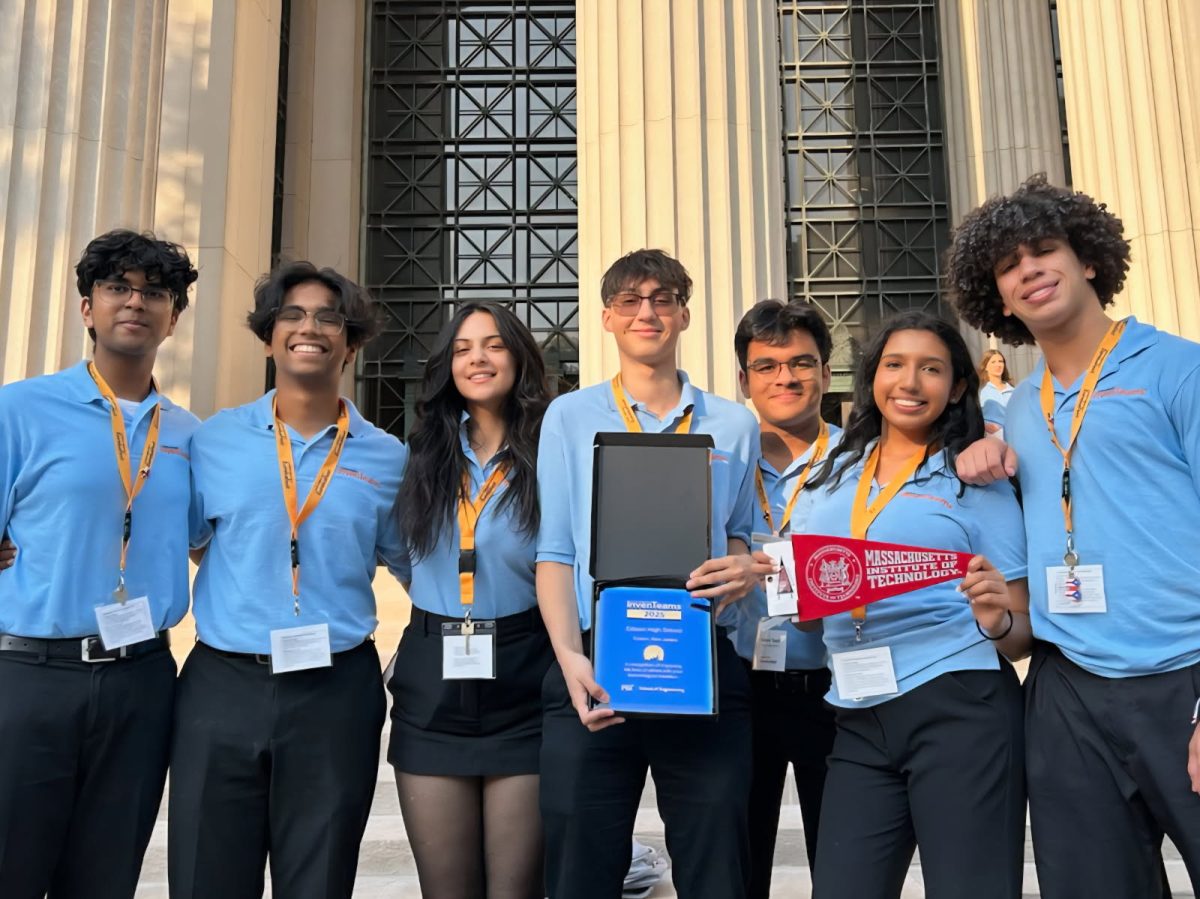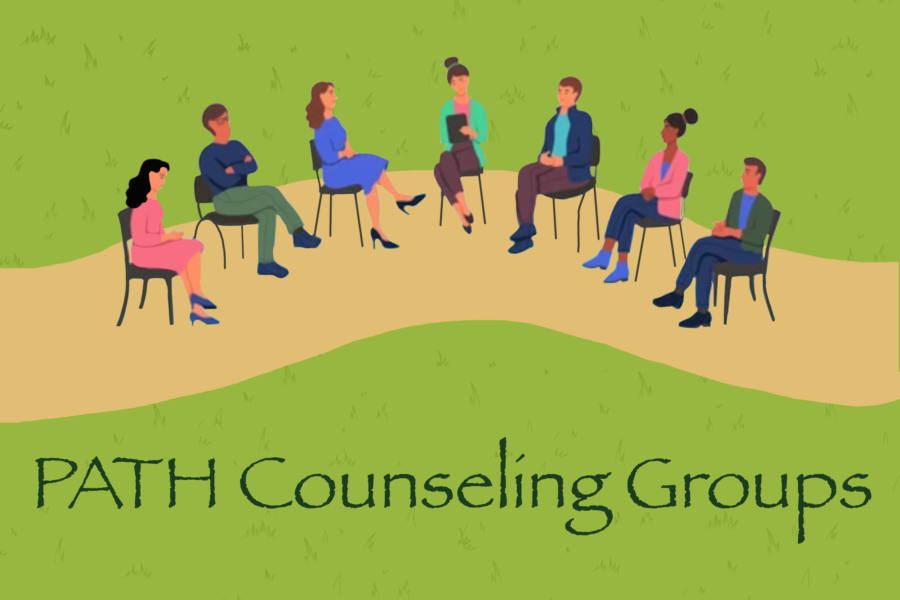Finding a Better “PATH”
June 15, 2021
This past year, Edison students dealt with a global mental health crisis due to the extenuating circumstances of the pandemic. Juggling academics and personal responsibilities on top of adapting to an immense amount of change has spiked mental health struggles. The cost, accessibility, and negative stigma surrounding mental health care often make high school students stray away from seeking professional help. This Mental Health Awareness Month, more than ever, has shown the importance of the Edison High PATH program. Its services are important, but may also be unfamiliar to the EHS student body.
There is widespread consensus that students’ performance improves when they feel healthy and safe in their day-to-day environment. PATH was created by the Rutgers University Behavioral Health Care, Child & Adolescent Services-Edison School Based Program for the purpose of providing a wide variety of mental health related services and resources at all Edison Township Public Schools.
Dr. Lily Almeida is the head PATH counselor at Edison High and a clinician supervisor. Siobhan McDermott is the PATH mental health clinician at both Edison High and Woodrow Wilson Middle School, and Dr. Suzi Millar has been a PATH counselor at Edison High for almost 10 years. In an interview following mental health week, The Eagle’s Eye contacted Dr. Almeida, Mrs. McDermott, and Dr. Millar last week to learn more about PATH and to discuss the impact this program has had on high school students.
EE: What exactly is PATH Counseling?
LA: The PATH is a dynamic partnership between the Edison Public School District and Rutgers – University Behavioral Health Care (UBHC). The primary objective of the program is to assure that children and adolescents obtain needed assistance in an accessible location. PATH provides a range of free and confidential mental health services in the elementary schools, middle schools, and high schools of Edison.
SMcD: Here at Edison High School, the groups we offer can differ every year depending on need. This year, students were asked to choose which groups they would be interested in attending. We also offer a Freshman Transition Group every year for four weeks during the summer break to assist incoming freshmen with the transition from middle school to high school.
SM: I have had the pleasure of providing support to EHS students for almost ten years. PATH stands for promoting acceptance, trust, and hope, and that has truly been our mission. We strive to offer a safe place for students to come for help and support.
EE: From what you’ve seen, what impact has this program had on Edison High students?
LA: This program has allowed students to receive immediate support during a crisis and has allowed students who do not have the ability to receive mental health treatment outside of school to get weekly individual therapy or group therapy with a Rutgers clinician for free. In addition to advanced level clinicians, our program also has a psychiatrist who provides psychiatric assessments and prescribes medication for students who need combination therapy (psychotherapy and medication).
SMcD: My experience with PATH groups has been inspiring and meaningful. Groups are an excellent way to increase community support and also promote connection, validation, and openness to different experiences and cultures among people in the same age group. Being a teenager is hard. Being a teenager during a global pandemic, well that took things to a whole other level. What I witnessed in the groups that I have held, was support for one another, gentleness, and space. Every group begins with the reminder that we are to treat each other with respect, openness, and kindness and that what is shared in a group stays within the group.
EE: Does PATH provide resources for students outside of counseling groups?
LA: We provide resources regardless of whether or not students are receiving individual therapy or are in counseling groups provided through PATH. Part of our work is assessing students and finding programs/resources that best meet their clinical needs.
SMcD: In addition to PATH groups, we do offer support sessions in school and assistance in finding appropriate counseling services outside of the school. We work with each student and family in guiding them to services that can meet their unique needs. On a daily basis, we are meeting with students, meeting and talking with families, collaborating with outside providers and advocating. While participating in our program, students feel understood, seen, heard. We strive to ensure that every person and their experience is witnessed and accepted.
EE: What would you say to a student who is thinking of reaching out to PATH?
LA: We would love for all students who are experiencing mental health issues to speak to their school counselors about a PATH referral. This will allow our clinicians to assess the student and make clinical recommendations that best meet their needs. These recommendations include different levels of therapeutic treatment including individual therapy or group therapy.
SMcD: Students may be hesitant to contact myself or Dr. Almeida directly and that is okay! We receive a lot of referrals from school counselors and oftentimes parents. Admitting that something is not right or asking for help can be scary and new for most people, we get that. Sometimes writing it down and sending it an email or note to us or their school counselor takes away a little of that fear. Simply writing, “Can I talk to a PATH counselor?” will get them right to one of us and then we will contact them and we will schedule something. Also, some students might not know how to start the conversation or what to say. That’s okay too! My advice is to contact us or talk to your school counselor even if it is to just get more information. One of my favorite sayings is, “If you can’t beat fear, do it scared.” If you are worried, hesitant or scared to reach out, remember that you can have all of those feelings and you can ask for help at the same time.
EE: How do you think the pandemic has impacted the mental health of high schoolers?
LA: People worldwide have been affected by the pandemic. A novel virus such as COVID-19 is a threat to our physical health and a threat to the health of our loved ones. This threat has caused us to change our lives by forcing us to become more isolated while trying to function in schools and jobs remotely. For many people, this has been extremely challenging. Isolation, over time, along with the threat of illness has caused many people to feel anxious and depressed.
For high school students in particular, these feelings are exacerbated by the pressures to continue to do well academically despite the challenges of remote learning, and by the feelings of isolation that come from not being around peers. Socialization is an integral part of an adolescent’s development, so the experience of isolation during this stage of development is very difficult.
SM: This has been quite a difficult year, filled with many changes and uncertainty and we want you to know you are not alone. If you or a friend are experiencing stressors or feeling overwhelmed by any difficulties in your life, please know that the PATH program is here to help. Asking for help shows courage and strength!
EE: How important is our mental health?
SMcD: Some may say I am biased, but I think mental health counseling is important for EVERY ONE at any given point in their life. Whether it is school-based counseling like the P.A.T.H. program or if it’s with a community agency or private practice clinician, mental health counseling is just as important and vital as annual check ups with your General Practitioner and check-ups at the dentist. The connection between mental health and all other aspects of life is strong and influential. When we are mentally healthy, our bodies are healthier, our relationships are healthier, and our behaviors are healthier.
Many people have a misconception that mental health counseling is just for people who are experiencing mental illness and that is not the case. Mental health counseling is also for those of us who want to know more about ourselves, to be more connected to the world around us, to be better communicators, to connect better with others and to feel healthier inside and out.
These mental health clinicians highly encourage students to look into PATH if they are experiencing any mental health issues or concerns. Doing so will help students realize that they are not alone and that support and help is accessible. Students do not need to struggle silently or in shame. These clinicians want to remind students that it can get better, that hope is real and that treatment is available.
Sharing information about the PATH program with your peers will encourage students to reach out for help when they need it most. Openly having conversations about mental health will empower those around you to feel more comfortable seeking help. By spreading awareness, stigmas surrounding mental healthcare lessen significantly. The vulnerability of speaking up is a strength, not a weakness. Consider reaching out to the counseling department’s PATH program when you are in need of supported assistance because this program is here for you and provides a myriad of resources to look into.
PATH’s Clinical Services and Resources:
Individual Therapy, Family Therapy, Psychoeducational Groups, Psychiatry, Crisis Intervention, Supportive Counseling, Classroom Presentations, Conflict Resolution, Substance Abuse Identification, Referral Services, Parent, Student, and Teacher Programming
PATH Counseling Groups Held at Edison High:
G.R.O.W.: Social Skills Group
Emotional Regulation Group
Coping with Anxiety Group
Grief Group
S.T.E.P.: An Anger Management Group
Time Management and Stress Group























































































